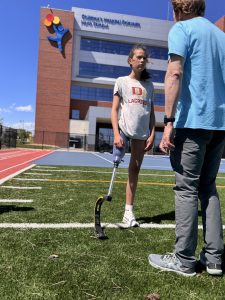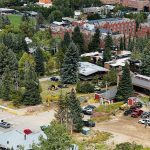Malone: Learn to live with wolves

Please join us for a book signing and discussion with Carter Niemeyer, Suzanne Asha Stone, and Glenn and Melanie Elzinga about “Fostering Peaceful Coexistence Among Humans, Livestock, and Wolves” on Saturday, Sept. 27, from 6:30-7:30 p.m. at the Third Street Center in Carbondale.
Recovering and living with wolves requires preventing conflict with livestock. Each of these speakers has successfully lived with wolves and livestock by using nonlethal management tools.
Why wolves? Wolves positively impact entire ecosystems through trophic cascades — the indirect effects of predators propagating downward through food webs. Aspen woodlands and willow shrublands provide two of our most biologically rich habitats in Colorado, but land use practices have reduced the extent and health of these critical wildlife habitats. Wolf recovery in protected landscapes has resulted in the recovery of aspen forests and willow shrublands, with the consequent recovery of wildlife species’ richness and abundance.
Featured speakers include Carter Niemeyer, who was wolf management specialist for USDA, Wildlife Services until 2001, when he was recruited by the U.S. Fish and Wildlife Service to run the wolf recovery program in Idaho. He retired in 2006 to write several memoirs including “Wolfer,” “Wolf Land,” and his new book, “The Other Ten Wolves: A Yellowstone Backstory.” Suzanne Asha Stone has been on the Western frontlines of wolf restoration since 1988. She is the founder and executive director of the International Wildlife Coexistence Network. Glenn Elzinga is CEO of Alderspring Ranch in the central Idaho Rocky Mountains where, using nonlethal coexistence methods, they’ve had no livestock losses in 10 years.
Please join us for this book signing and important discussion with these experts about how to coexist with wolves and restore a natural balance to Colorado’s wildlands.
Delia Malone
Redstone






